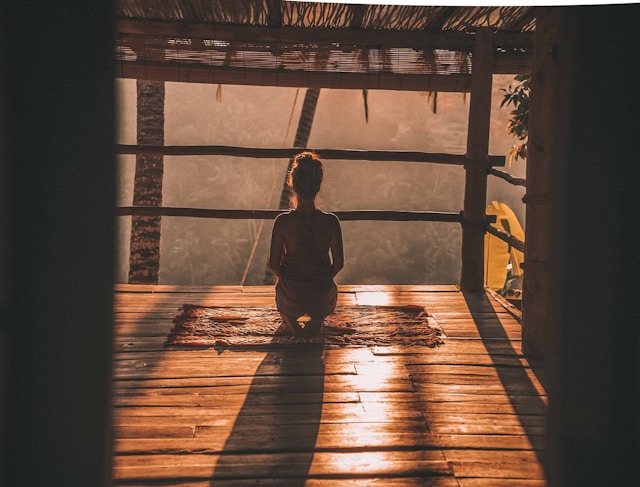In today’s fast-paced world, more and more individuals are seeking alternatives to the traditional lifestyles that society prescribes. From minimalism and tiny-house living to communal spaces and nomadic journeys, alternative lifestyles are gaining popularity as ways to discover personal happiness and meaningful connections. One avenue gaining momentum among the younger generation integrates leisure activities into unique lifestyle choices that challenge traditional norms.
Embracing Alternative Lifestyles
Alternative lifestyles offer an escape from societal expectations and consumer-driven routines, providing an opportunity for individuals to align their daily lives with their core values. For some, minimalism represents freedom. Stripping down possessions to only essential items allows people to invest more time, resources, and energy into experiences and relationships. On the other hand, communal living arrangements foster a sense of community, shared responsibility, and deeper interpersonal bonds, combating modern loneliness and social isolation.
Digital Nomadism: Freedom and Flexibility
Digital nomadism represents freedom from geographical constraints. Remote work opportunities enable individuals to travel extensively while maintaining careers. Embracing a minimalist mindset often goes hand-in-hand with digital nomadism, as people learn to pack lightly and prioritise digital assets over physical ones.
Gaming emerges as an essential tool, providing socialisation, stress relief, and entertainment without taking up significant physical space. Additionally, digital nomads frequently leverage co-working spaces, online communities, and productivity apps to stay connected and organised. By prioritising experiences and adaptability over material possessions, digital nomads cultivate an enriching lifestyle that emphasises personal growth, cultural exchange, and flexible living.
The Role of Gaming
Once viewed merely as a pastime, gaming has evolved into an integral component of several alternative lifestyles. Digital nomads, who travel and work remotely, often incorporate gaming into their routines as a way to unwind, maintain social connections, and build global friendships. Online multiplayer games and virtual worlds allow nomadic individuals to establish stability within their transient lifestyles. Gaming communities transcend geographical barriers, creating supportive networks that persist despite physical distance.
The surge of online casinos, including non GamStop casinos, has provided another dimension to gaming as part of alternative lifestyles. These platforms offer an appealing form of entertainment and potential income, attracting users seeking flexible and accessible gaming experiences without stringent regulations. As such, online casinos complement the lifestyle of those who favour independence, flexibility, and convenience, making them increasingly popular among digital nomads and alternative lifestyle enthusiasts.
Similarly, the van life movement, characterised by individuals choosing to live out of converted vans or RVs to maximise freedom and adventure, often finds gaming to be an essential part of their lifestyle. Portable gaming consoles and compact tech setups have become common features in these mobile homes, providing entertainment during long journeys and a familiar comfort during downtime.
Rethinking Success
Choosing an alternative lifestyle often means redefining success beyond material wealth and traditional career advancement. Instead, individuals focus on personal fulfilment, prioritising mental health, meaningful experiences, and genuine relationships. Advocates believe true success lies in having the freedom to pursue passions, flexibility in daily routines, and building connections that enrich their lives, rather than conforming to conventional societal expectations of achievement.
Minimalism and its Benefits
Minimalism, a widely embraced lifestyle, encourages individuals to simplify by reducing clutter, spending less, and detaching emotionally from material possessions. Influenced by documentaries and social media advocates, this approach aims to create clearer mental space, lower stress, and greater financial independence. As a result, minimalists frequently report enhanced life satisfaction, improved emotional well-being, and a sense of freedom from the pressures of consumer culture.
Communal Living: Building Community
In communal living situations, such as intentional communities and co-housing developments, residents share responsibilities and resources, from household tasks and gardening to childcare and meal preparation. This shared model promotes sustainable living, reduces individual burdens, and fosters supportive relationships. Communities around the world adopting this approach report higher satisfaction levels, lower stress, and enhanced overall well-being compared to isolated living.
Challenges and Rewards
Adopting an alternative lifestyle is not without its challenges, however. Individuals often face scepticism from family and friends who adhere to traditional measures of success. Additionally, transitioning into these lifestyles requires careful planning, financial preparation, and emotional readiness. Yet, proponents argue the rewards far outweigh the initial hurdles, leading to lives filled with meaning, authenticity, and fulfilment.
As society increasingly acknowledges the impacts of stress, isolation, and consumerism on mental health and happiness, alternative lifestyles present compelling options. They challenge individuals to reconsider their priorities, redefine personal success, and explore new ways of living authentically. Whether it’s through minimalism, communal living, van life, or integrating passions such as gaming into daily life, alternative lifestyles offer diverse paths toward happiness and fulfilment in the modern world.


